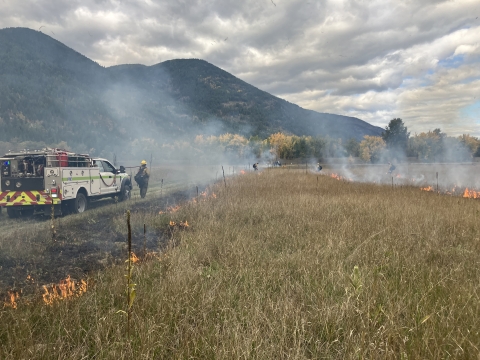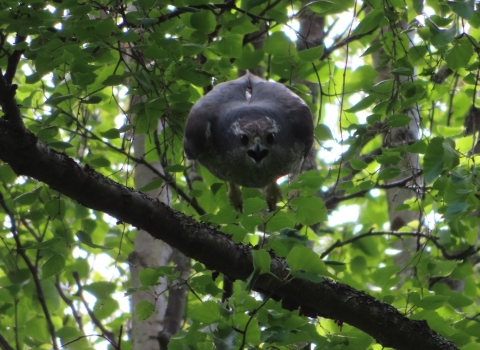Prescribed fire is an important habitat management tool at Kootenai National Wildlife Refuge. Personnel from the U.S. Fish and Wildlife Service’s fire management program and refuge staff recently completed an almost 329-acre prescribed burn prescribed burn
A prescribed burn is the controlled use of fire to restore wildlife habitat, reduce wildfire risk, or achieve other habitat management goals. We have been using prescribed burn techniques to improve species habitat since the 1930s.
Learn more about prescribed burn on the refuge. U.S. Forest Service personnel from the Idaho Panhandle National Forest provided assistance with planning, preparation and implementation, as did members of the Selkirk Training Exchange. The prescribed fire will help control invasive species invasive species
An invasive species is any plant or animal that has spread or been introduced into a new area where they are, or could, cause harm to the environment, economy, or human, animal, or plant health. Their unwelcome presence can destroy ecosystems and cost millions of dollars.
Learn more about invasive species and manage vegetation and reduce hazardous fuel that contributes to catastrophic wildfire.
Refuge managers worked with fire personnel to develop a burn plan – or prescription – for each prescribed fire that takes place at the refuge. A burn plan includes strict safety measures, such as a pre- and post-burn monitoring plan, identifying the ideal weather and wind conditions for the prescribed fire to take place, and tracking the air quality in the area.
Established in 1964 for migratory waterfowl, the refuge protects 2,774 acres of habitat for over 300 species of wildlife – 45 species of mammals, 22 species of fish, seven species of amphibians, six species of reptiles, and over 223 species of birds. Visitors enjoy hiking, hunting, fishing, and the unique auto tour route.
For more information about the refuge or planned prescribed burns, please contact refuge headquarters at (208) 267-3888.





